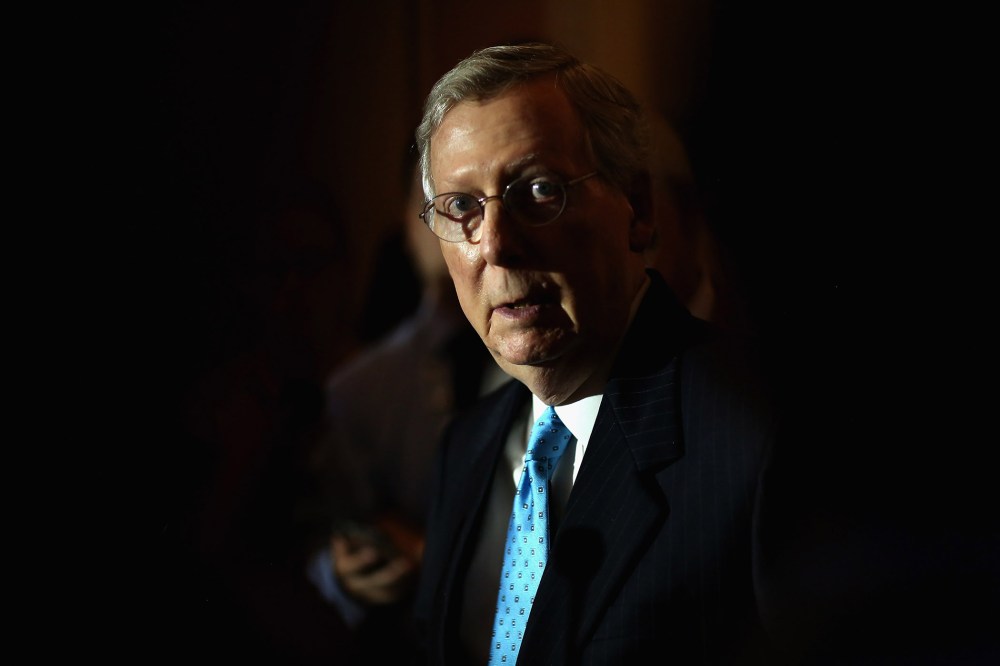If all goes according to plan, Senate Majority Leader Mitch McConnell (R-Ky.) will execute the “nuclear option” today, forcing a shift in the chamber’s rules in order to make it easier to quickly approve more of Donald Trump’s judicial and executive-branch nominees.
But ahead of the showdown, the Republicans’ Senate leader is eager to make the case that his tactics, which may seem radical, are fully justified. To that end, McConnell wrote a piece for Politico insisting that Democrats’ “obstructionism” has left him with little choice.
Since January 2017, for the first time in memory, a minority has exploited procedure to systematically obstruct a president from staffing up his administration. This new, across-the-board obstruction is unfair to the president and, more importantly, to the American people. Left unchecked, it is guaranteed to create an unsustainable precedent that would see every future presidency of either party obstructed in the same mindless way. […]
Because of this obstruction, the Senate’s progress in filling important executive branch positions has been insufficient. Crucial jobs are still being held empty out of political spite. More nominees whom I suspect would be confirmed without opposition are still being delayed indefinitely because our colleagues cannot finish grieving their loss in 2016.
The all-encompassing, systematic nature of this obstruction is not part of the Senate’s important tradition of minority rights. It is a new departure from that tradition. And this break with tradition is hurting the Senate, hamstringing our duly elected president, and denying citizens the government they elected.
There are a couple of ways of looking at an argument like this, but let’s start with the particular details.
There’s some truth to the assertion that the Senate Democratic minority has been vigorous in slowing down the confirmation process, borrowing a page from Republicans’ playbook, and taking it just a little further by applying the tactics to relatively obscure, lower-level nominees.
There’s also some truth to the Democratic pushback: many key federal offices are empty because Donald Trump hasn’t nominated anyone to fill them, and when the White House does send nominees, they’re often unvetted. That means the Senate has a responsibility to do its due diligence, which takes time.
But as important as these details are, it’s hard not to get the sense that Mitch McConnell doesn’t want to recognize just how awful a messenger he is for this message.
I’m reminded of a column the Washington Post’s Dana Milbank wrote two years ago this week, describing McConnell as the politician who effectively “broke America.”
No man has done more in recent years to undermine the functioning of U.S. government. His has been the epitome of unprincipled leadership, the triumph of tactics in service of short-term power. […]












